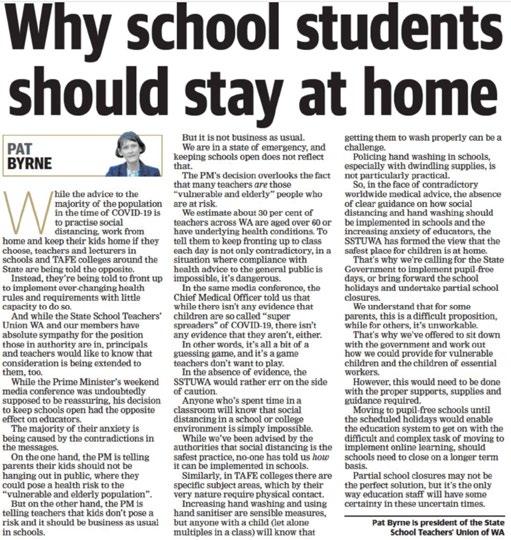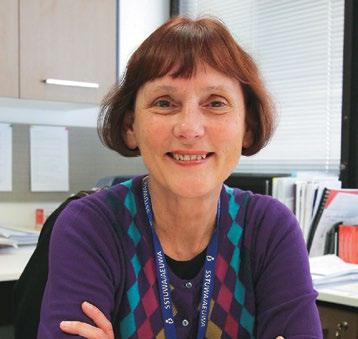Industrial
Vale Ann-Marie Heine Ann-Marie Heine, the first woman to hold the position of general secretary of the SSTUWA, died recently in Adelaide where she had lived for many years. Ann-Marie was first elected to the SSTUWA Executive in 1979 at a time when women held few offices within the union. Executive at that time consisted of four women and 15 men. Ann-Marie rose rapidly to become senior vice president in 1982, a position which she held until 1984 when she was appointed by Executive to the position of general secretary. Ann-Marie was a prominent spokesperson for women’s rights both within the union as an Executive member and senior officer, and in a broader social context at a time when women’s rights were being hotly debated across the board. This was a period which saw the appointment of the first SSTUWA women’s advisor, the establishment of the SSTUWA Elimination of Sexism Committee and the active involvement, alongside women from all parts of the community, including the broader union movement, of SSTUWA women in prosecuting the case for the first equal opportunity legislation in WA in 1984. Ann-Marie was possessed of a great wit and was a formidable public speaker.
She articulated the views of many female SSTUWA members who were subject to the extremely conservative rules and regulations which applied to women in the public sector at that time. Within the SSTUWA she led the debate on a number of policy fronts, including the removal of restrictions on the gaining of permanency for women teachers and the consequent access to superannuation. She was also instrumental in the early changes from promotion by seniority towards merit promotion. Ann-Marie argued strongly against the gender stereotyping of deputy principal roles which was then seen as normal, in both primary and secondary schools, and pushed the department to lead by example through the introduction of changes to practice aimed at breaking down some of the entrenched barriers to women’s career progression. This was little more than 10 years after equal pay for women teachers had been introduced. While none of these issues seem at all contentious now, that was not the case at the time. In particular, the move to merit promotion was fiercely resisted and changes to union policy followed only after much heated debate over several SSTUWA conferences.
Views were polarised and hostilities evident over a long period of time. Ann-Marie’s activity extended to the national union – the then Australian Teachers’ Federation (ATF) – where she argued for the same issues at the national level; she also represented the SSTUWA on the Trades and Labour Council of WA, and the ATF at the ACTU committee level. Through her advocacy and example, AnnMarie paved the way for many women in education at the time, both in the Department of Education and within the SSTUWA. Many of the first wave of female principals appointed in the late eighties and early nineties were products of the vigorous representation by the SSTUWA on behalf of women teachers as, indeed, was union policy itself. This union has in recent years had elected representation which closely reflects the composition of its membership at both senior officer and Executive levels. None of these things happen without people who dedicate their energies and skills towards specific goals. Ann-Marie was one of those people. The SSTUWA would like to extend our sincere condolences to Carl and Jason and their families.
Western Teacher May 2020
23









